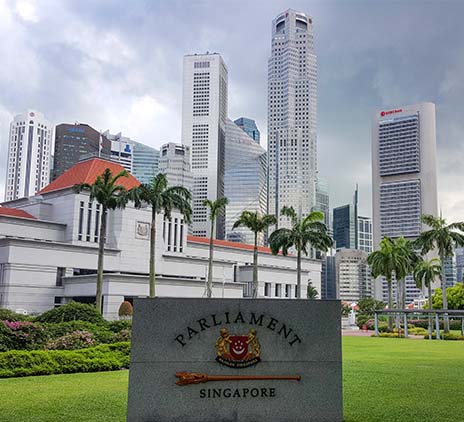GST update: Key legislative amendments
On 30 June 2025, three subsidiary pieces of legislation were gazetted that introduce important updates to Singapore’s Goods and Services Tax (GST) regime. These amendments reflect a continued move toward greater regulatory alignment, and compliance enforcement within Singapore’s indirect tax framework.
In this alert, we summarise the changes and explore how they may impact businesses — from registration and invoicing obligations to transactional pricing and accounting for GST using the tax fraction. We also share our thoughts on how businesses can keep up with the steepening curve.
Updates
From 1 July 2025, businesses that reasonably forecast crossing the SGD 1 million taxable turnover threshold in the next 12-month period will now have up to two months before the effective date of their GST registration. This change only applies to prospective registrations and does not alter the 30-day requirement to apply for registration upon becoming liable to register for GST.
Practical implications
- The extended lead time gives businesses a longer window to reprice, update systems, and train staff
- However, reliance on “forecasted turnover” increases scrutiny — IRAS requires objective evidence, such as signed contracts, confirmed purchase orders, or board-approved forecasts
- Businesses that delay operational readiness despite being registered (or liable for registration) risk underpayment of GST , invoice errors, and penalties
How we can help
We can provide your team with end-to-end support for GST registration, systems readiness, tax logic review, and invoice compliance review. Our team also has experience supporting businesses with IRAS queries and audits.
Additional categories of fees and charges have been added to the list of non-taxable supplies made by public agencies. These now include specified application and licensing fees under:
- Corporate Service Providers Act 2024
- Financial Services and Markets Act 2022
- Guns, Explosives and Weapons Control Act 2021 and its 2025 regulations
These changes take effect from 30 June 2025 and 1 July 2025, depending on the specific fee type.
Practical implications
- Payments to regulators for specified licences, permits, and security clearances should no longer attract GST.
- GST-registered businesses can no longer claim input tax on these payments, increasing their net costs where the public agencies do not reduce the fees payable by the GST component.
- For government-facing service providers (e.g., CSPs, regulator of digital token platforms, security consultancies), pricing models and contract assumptions may need to be reviewed.
How we can help
We can assist public agencies review the GST treatment applied to their service fees and charges to avoid a repeat of the public headlines from February 2024 (Govt to refund $7.5m in GST wrongly collected by 6 agencies over 5 years | The Straits Times)
The GST (General) Regulations have been amended to align with administrative developments and streamline provisions. As part of this, businesses no longer require prior approval from the IRAS to use the margin scheme when accounting for GST on second-hand goods.
Practical implications
Businesses are no longer required to seek prior approval to account for GST on second-hand goods under the margin scheme (i.e using the tax fraction) thus mitigating double taxation on these supplies.
How we can help
Whilst the margin scheme removes double taxation, it requires business to capture and track the cost price and sales price of their second-hand goods on an item-by-item basis. We can assist businesses review their existing processes and controls to ensure they have the necessary data to account for the correct amount of GST and maintain compliance.
How we can support you
Our team of Indirect Tax specialists help businesses navigate change with confidence. Whether it’s interpreting new legislation, managing IRAS queries, or optimising your GST recovery position, we offer:
- GST registration, GST compliance, and deregistration support
- GST risk management reviews (e.g. Healthcheck, Assisted Self-Help Kit (ASK) reviews, Accredited Compliance Assurance Program (ACAP) reviews
- Input tax diagnostics and contract reviews
- Tax technology integration and InvoiceNow readiness
- GST audit defence and voluntary disclosures
Contact us

Related insights
View more


